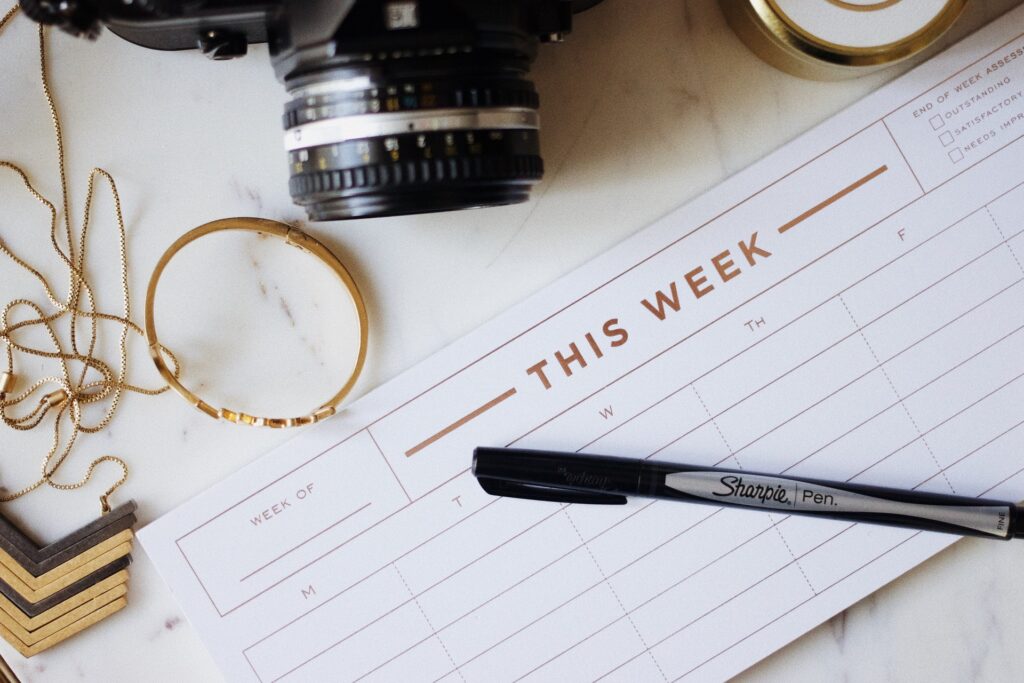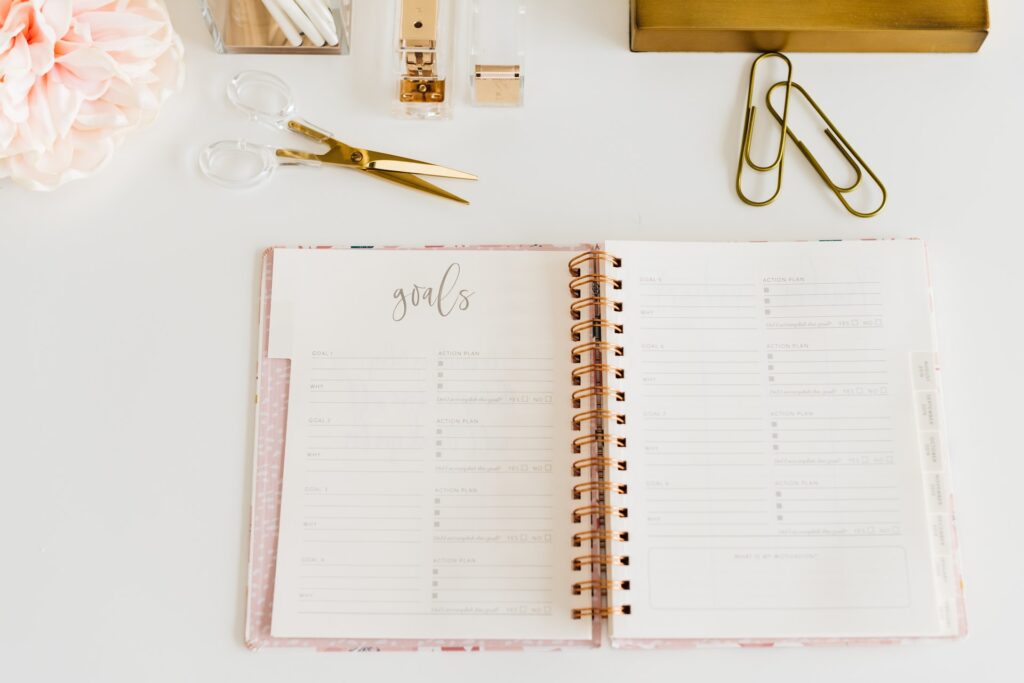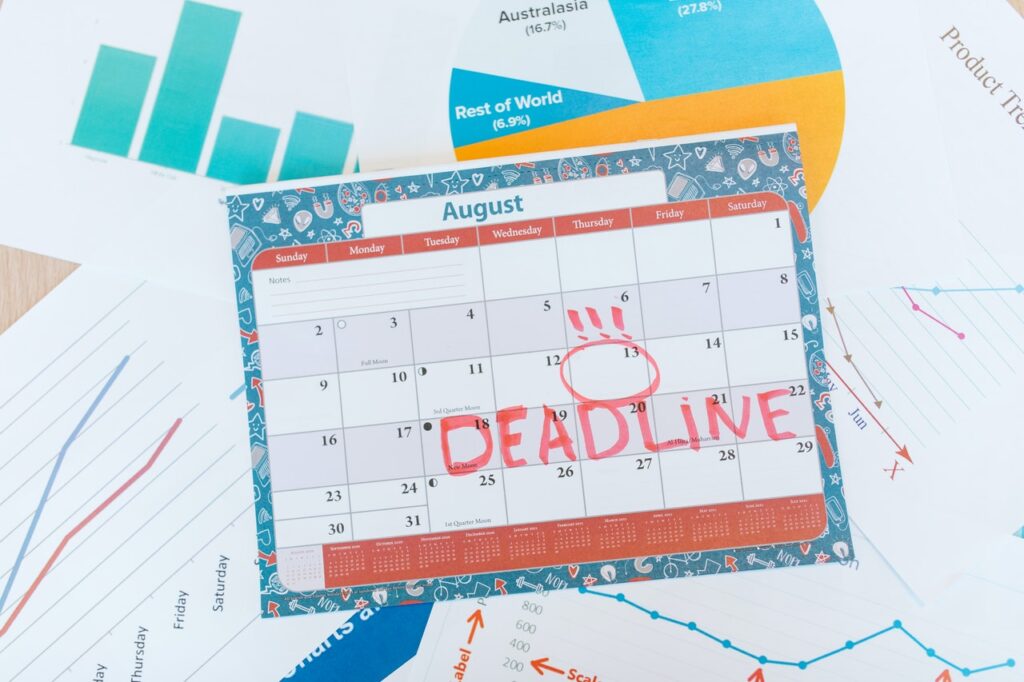This guide is all about helping you achieve your goals and helping you figure out how to hold yourself accountable in getting them done.

When it comes to success, self-discipline is one of the most important traits you can possess. Without it, you’ll find it difficult to achieve anything worthwhile. But with self-discipline, anything is possible.
One of the best ways to develop self-discipline is by creating habits. When you have a habit, it becomes second nature to do what needs to be done in order to achieve your goals. For example, if you want to get in shape, one of your habits might be going to the gym every day at the same time.
Another way to develop self-discipline is by setting goals and sticking to them. When you have a goal, you’ll find it easier to stay on track and make the necessary sacrifices in order to achieve it.
Finally, accountability is key when it comes to developing self-discipline. By holding yourself accountable, you’ll be more likely to stay on track and achieve your goals.
And it’s OK if you’ve ever felt like holding yourself accountable was hard, but I’m definitely in your shoes with that! I lack self-discipline and it’s something I struggle to build every single day. It’s why I wanted to write this post because it was a double-whammy of information for not only myself but for you as well.
So, in this guide, we will discuss how to hold yourself accountable and achieve your goals!
This post is all about how to hold yourself accountable.
Table of Adventures
Why hold yourself accountable?
I’m going to keep this short.
If you won’t keep yourself accountable for your own actions – be it in your relationships, your fitness, when you’re studying – then who will?
No one is out here holding your hand for the rest of your life, so when you ask yourself, “Why should I?” remember that you’re the only one accountable for the actions that you take.

Creating Habits
I have a secret to impart to you: in order to hold yourself accountable for your actions, goals, whatever it’s all about creating sustainable habits.
If you’ve got a goal to become a well-known blogger you’ll have to wake up early, invest in internet knowledge, and work hard every single day. But those things don’t just magically come to you without you training your brain to remember that they’re important to you.
It can take time (roughly 21 days) to get a habit rolling on auto, so start early and be consistent. And if I may, learn time management early on, don’t wait until you’re nearing your deadline before you realize what else needs to be done.
Related: 17 Daily Habits That Improve Your Life
Make a list of your goals
You can’t hold yourself accountable for your goals if you don’t even know what your goals even are.
So, come up with a list that combines both short-term and long-term goals, and don’t write off any that you feel like you can’t accomplish. Write them down anyway.
If you’re confused about what that means, I’ll give a short rundown. Short-term goals are goals you want to be completed soon and long-term goals will take a while to get done. Both terms are relative to the general gist of what you’re trying to get done.
Maybe your long-term goal is to renovate your home. Some short-term goals that could apply would be figuring out the paint colors for the rooms in your home. See? Easy.
Related: 100 Life Goals That Are Pure Genius
Other Ways of Accountability:
Put together your personal mission statement
What is it about you that makes you go, “Wow, this goal really speaks to me and sparks joy?”
Your personal mission is all about putting together your values, your wants and your needs all into one place so that when the going gets tough you can look back at it and remember why. You’ll need it for when there are days when you’re feeling stagnant, suffering in your own mental grogginess, or feeling like it may not be worth it.

Prepare what you need ahead of time
By preparing what you need in advance you put yourself a step ahead of the game.
This is especially important if this is a New Years’ resolution. It has been studied by the University of Scranton that only 8% of people who make a resolution complete their goal.
Don’t let that be you.
No matter when you come up with your goal, it’s always important to prepare, prepare, prepare. It’s better to be overprepared than to be underprepared. So if you’ve got a goal of creating 1 YouTube video weekly you better bet you need to figure out how to get that done!
P.S. This is a great step to get started on your self-discipline journey if you struggle with that (like me!).
Break down each goal into specific steps that you can take to achieve it
Earlier, did you notice how we broke down the long-term goal of renovating your home into a smaller goal of picking out paint colors?
That’s exactly what you want to do next – break down the long-term goals into smaller short-term goals or even micro-goals within short-term goals.
A really great way to illustrate this is through weight loss. Say you’re wanting to lose 100 lbs within a year (a SMART goal!), one goal would be to lose 10 lbs per month, which would equate to roughly 2-3 lbs per week.
From there you could go into micro-goals of how to get there. You’ll need to figure out your calorie deficit and how hard you’ll have to exercise daily in order to reach your main goal.
And then you’d look around and see what kinds of healthy foods you’d be OK with eating for the duration of your year to accomplish said goal.
The point is – the smaller you can get, the easier it will become to make the overall picture fit together in the end.

By breaking down your goals you can see every moving piece and make adjustments where needed. It will also give you an easier framework to check out when you’re feeling overwhelmed or upset that you’re not making progress.
Find an accountability partner who will help keep you on track
An accountability partner is someone who is meant to keep you on track throughout the life of your goal.
It can be anyone that you trust to push you and keep you focused on the end goal.
Even if you’re in the middle of your goal and you’re feeling like you need someone else to help you, find that person, don’t hesitate to ask for help.
Having an accountability partner is healthy as you’re able to gain feedback from your partner and you’re also in a special position to have someone invest in you the same way you’re investing in your goal. How cool is that? ʕ•ᴥ•ʔ
Track your progress and stay on track
Have you ever gotten to a point in your goal where you think you’re doing well and then when you try to quantify it you realize how badly you’re doing?
It’s why it’s so important to track what you’re doing when you’re working out or how many chords you practiced for a musical instrument. To track your overall progress.
By tracking your progress you’re honoring your pact to keep yourself accountable (plus you can use it with your accountability partner as well!). You can see the days where you made little effort and the days you went above and beyond. It really helps to keep you focused and in-tune with the next steps of your goals.
You can do this in a number of ways – using a calendar, a planner, or a journal.

Set deadlines for yourself
It’s important that you value your time. Unlike money, it’s the one thing that you can never get back. It’s why the wealthy pay for services if it means that they gain more time in their day.
Therefore, think like the wealthy and value the time that you have by setting deadlines for yourself. Use your calendar (wall calendar, desk calendar, Google calendar, phone apps, Happy Planners, etc) and stick to the deadlines you give yourself.
Also, when you’re feeling like something won’t be done on time be honest in your abilities and readjust according to your productivity.
Celebrate your accomplishments, no matter how small they may seem
I’m a huge advocate for celebrating your accomplishments whatever those may be.
Maybe you just needed to get out of bed this morning. Celebrate it.
Or maybe you didn’t want to go to the gym today, but you made it through in the snow anyway. Girl, you absolutely better celebrate the effort!
The larger the accomplishment, the better your reward should be, but they should be there nonetheless. They will incentivize you to continue working and pressing on.
For me, Lemonade + Adventure has been a sweet labor of love. It started off rocky and I believe it will get to a place where I know it will eventually sustain itself. I celebrate every post with a smile, a pat on the back, and a bit of rest.
Do what works for you and remember to keep coming back for more goodness.

Make your goals public
Sometimes making your goals public is a great way to hold yourself accountable. However, studies have shown that if you share your goals publicly you’re less likely to get them done.
But maybe you’re the kind of person who this will work for, so I’m leaving it here because we’re not all cut from the same cloth.
If you struggle to lose weight, starting a YouTube channel can be a fantastic way to hold yourself accountable as people will tune in to see how far you get. That may actually end up being your unique accountability partner, too!
The nice thing about doing something publicly is that your audience, your family, and your friends, will constantly want updates and will want to drive you to success. So, if you’ve got a supportive network – or want one – make those goals public and get to it!
Find someone else to hold accountable
I’m part of a Facebook group that lends itself to co-working to help with motivation and support. By holding someone else accountable to their task, a lot of us are able to hold ourselves accountable simultaneously.
It’s a win-win for everyone involved as they’ll be looking out for you as much as you do for them.
Plus, from my own experience, when I see someone so hard at work at their craft I feel like doing more of my own.
Adjust your plan as needed to continue making progress
You won’t ever be 100% on the daily. It’s why tracking your progress is so important.
So when your tracking is showing that you need to make adjustments to reach your destination, do it. It’s completely okay to adjust as you go – and honestly, you really should.
Your dreams of becoming a world-class figure skater won’t happen in a few months so don’t force your body to do something it can’t do. Tweak your plans to accommodate what can be done in the time that you do have.
Or … extend your deadline, but keep it firm. Don’t constantly change your deadline because you’ve fallen off the bandwagon. Either you do it or you don’t.
Don’t make an excuse for yourself.

Write down your goals and post them somewhere you will see them every day
Not only is it important to write your goals down, but it’s been shown that if you post them somewhere that you can see them on a daily basis you’re more likely to do them (it’s why vision boards are effective).
And no, I don’t mean on social media.
This is a pen and paper, printed document, or maybe even a desktop wallpaper scenario. I personally love to write it out, tape it to my wall beside my bed, and put a motivating desktop wallpaper to keep me going.
This allows you to keep your goals at the forefront of your thoughts and to walk in the way that you want those goals to eventually be completed.
Related: How to Set Monthly Goals Even When You Suck At ‘Em
Don’t give up when things get tough – keep pushing yourself towards your goal
This is the stage where people start to give up – when things aren’t easy anymore.
For a long time, I struggled to go to the gym because I didn’t like feeling the pain of my muscles doing micro-tears. But in the end, I readjusted my plan and started doing other activities that would enable my muscles to build before going into workouts that I didn’t necessarily like but knew would make me stronger.
So don’t give up, darling girl, you can do it. It’s going to get hard before it gets easy!
Know your signs of procrastination
In the same vein, you need to know your signs of procrastination.
For me, if I tell myself I’ll do it later, it’s never going to get done. One way I try to alleviate that pressure is by writing a simple to-do list that I can cross things off for throughout the day.
Being aware of what will stump you means you’ll have the foresight to figure out how to get out of it when it happens. So by being proactive about it now you won’t fall into the trap of “doing it later” when later may never come.

Seek feedback
This doesn’t have to come from your accountability partner. In actuality, you should ask people who have been in your shoes what you can do to improve and where you can “cut corners” to get the desired result you’re looking for.
You can talk about it on forums, discussion boards, even in Tik Tok comments, and get first-hand experience from others who have been where you are.
Conclusion
Whether you are trying to figure out how to hold yourself accountable for goals, working out, for studying, or any number of things, it’s important to do it.
By holding yourself accountable you are able to build your self-discipline which bleeds into everyday things like holding off on eating that cupcake when you should be eating healthy. The thing is that it can be really difficult at times to do. But! I’m hoping that this little guide helped you immensely in trying to find ways to help you in your journey to self-accountability.
